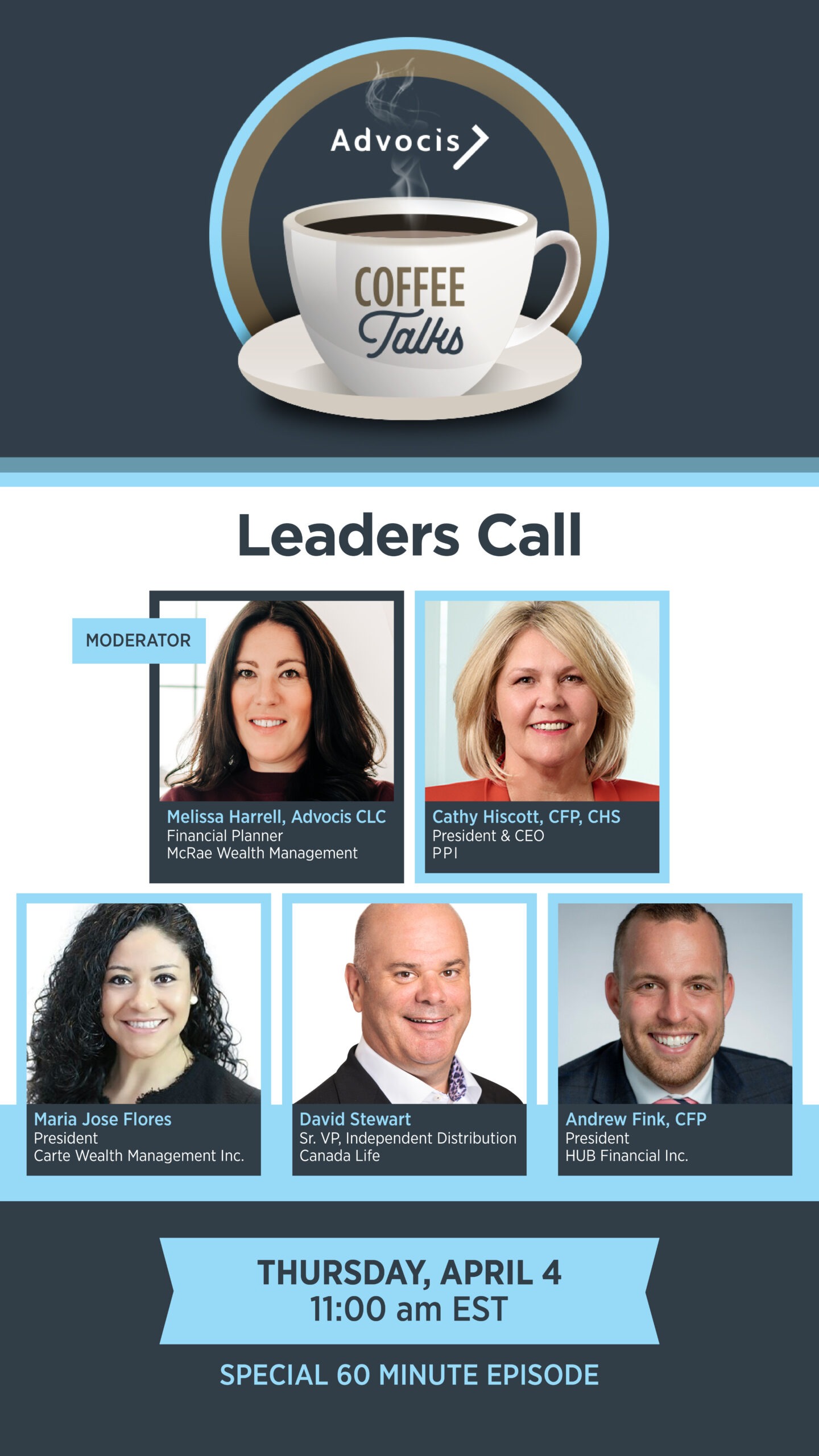This article by Deanne Gage originally appeared in the Nov./Dec. 2012 FORUM.
We interviewed Jane Blaufus, featured in this piece, for Episode 3 of our Financial Advice for All podcast in 2019. Listen here.
Suddenly Widowed
We all know the old adage about death and taxes. Seems very few clients want to think about eventualities, though. Financial advisors need to prepare the families of clients for the financial realities of when a loved one dies. Deanne Gage explains why proper planning is essential, why it’s important for the spouse to be involved in financial decisions, and what advisors can do to nurture that extended relationship.
The vast majority of clients would prefer not to think about their eventual demise, or that of a loved one. This could explain why some drag their heels when it comes to updating their wills and other financial arrangements, or simply ensuring heirs know where to find important documentation.
In more traditional client relationships you may be dealing with the husband while the wife sits on the financial sidelines. You’ve asked about her involvement only to be told that “she’s not interested in this stuff.”
This may not be a problem until something happens. Let’s say the husband dies. The wife is now widowed — coping not only with a huge emotional loss but facing all kinds of financial decisions she knows nothing about. While many women of the baby boomer generation and younger are in control of their finances, older women in their 70s and 80s are often in the dark.
Surprisingly, the average widow in Canada is only 56 years old. Widows make up 45 per cent of seniors, according to Statistics Canada. How you handle a male client’s death — and treat his widow — can mean the difference between retaining the assets and losing them completely. In fact, studies show that 80 per cent of women will change advisors within 18 months of their spouse’s passing.
“The hard work for a financial advisor begins when you have to deliver on your promises and what you said you were going to do,” says Jane Blaufus, a former insurance advisor based in Burlington, Ont. “These widows are going to be the ones handling the money after the deceased is gone. If you don’t already have a trusted relationship with her, you are not [going to get] past first base.”
Blaufus knows firsthand how this can happen. She recalls inheriting a client from another advisor when the client suddenly passed away. Blaufus hadn’t had time to build a relationship with his spouse. When Blaufus ultimately delivered the life insurance cheque to the widow and other family members, “it was like the Spanish Inquisition. I was on one side of the dining room table and they were on the other, arms folded. I never heard from them again.”
The widow psyche
Expect working with widows to be a slow process. Remember: they’ve just lost their spouse, so everything from getting out of bed to making arrangements and doing paperwork to meeting with you is going to be onerous. Accordingly, you might be tempted to want to “fix everything” for them. Wealth management director Kathy McMillan of Calgary-based Richardson GMP advises you to resist this temptation and spend more time listening. “If [widows] feel you’re impatient in any way, they will clam up,” she explains. “Just listen and allow them time to ask any questions.”
In McMillan’s practice, widows receive a level of service that goes well beyond what the average client receives. That means more discussions and meetings. “You have to have supreme patience because while [widows] may have the desire to know about finances now, this is not their field,” she says. “They may not have an aptitude for it, and may get frustrated.”
Other widows might be concerned about their financial well-being. It works in your favour if you can offer them the assurance that sufficient funds are available to take care of them, notes Terry Zive, president of Toronto-based Zive & Associates. Cases where a husband has left his wife considerable debt and not enough assets to live on, however, are a double whammy and may not bode well for the advisor. “They always want to know that they have enough money to last their lifetime,” Zive says.
Others might want to jump into financial discussions but are mired in a sea of grief. When Jane Blaufus’s first husband died in a plane crash 13 years ago, she thought her experience as an advisor would help her get through everything. Turns out she was wrong. While she was prepared financially, she still felt blindsided by other issues — from the bank not letting her pay off her mortgage to trying to return her husband’s new truck. “Even with everything I knew and learned, and all my expertise, I was so stunned by what had happened that I could not think straight,” she explains.
Blaufus believes the first year of widowhood is the hardest since it’s the year of firsts without the spouse — first wedding anniversary, first birthday, first holiday, and of course the one-year anniversary of the spouse’s death. The ordeal prompted Blaufus to write a book, With the Stroke of a Pen: Claim Your Life, in hopes of helping other widows or anyone who wants to emotionally and financially plan for their loved one’s future.
Ultimately, Blaufus was able to solve any minor financial incidents that came up because she had someone in her corner — her longtime trusted advisor who she said took his time and provided much-needed support throughout the lengthy process.
Bringing the uninvolved on board
So how do you engage the uninvolved spouse? Some advisors accept that one spouse just doesn’t want to be involved with finances. But it’s still important to involve both in some capacity, notes Biljana Manojlovic, a certified financial planner with the private banking group of RBC Wealth Management in Vancouver. “Sometimes when you do see the spouses together, one will tend to take more of an interest but at least they’re there,” she says.
Wake-up Call
Clive and Marsha Downing are two of Golden Girl Finance Inc.’s Susan Misner’s former clients. Misner dealt mainly with Clive concerning their assets and investment portfolio. Marsha was more than content not to be involved. This worked out well for them until Clive had a serious stroke in his early 60s. Clive’s recovery took several years and key investment decisions lingered.
“[Marsha] was one of those women who wasn’t worried about anything ever happening, but then [Clive took ill],” Misner explains. “Women in this situation feel confused, and are often disinterested and aggravated by the fact that they have been left to deal with these issues.”
Clive’s critical illness was a huge wake-up call for Marsha. Misner spent considerable time with Marsha, educating her on investments and the financial issues she and Clive had been working on. Turns out Marsha was a quick study who thrived on playing a more active role in their financial future. Today, a fully recovered Clive seeks Marsha’s input on important financial decisions. They work together as a team, and when death eventually strikes, Marsha will be more confident and will be fully prepared to handle the finances. “She’s now involved every time there’s a meeting,” Misner says.
If it’s not possible to have both parties present in a meeting, at least once a year Manojlovic will entice them by arranging an informal breakfast or coffee meeting. “Nine times out of 10 that has worked, and the husband was always appreciative that I thought of that,” she says. “We don’t have to go through all the graphs and charts but it’s important to have a connection. One day, she will be solely responsible for the finances, so she should at least know who to call.”
Blaufus feels it’s a matter of laying all your cards on the table. Many advisors, she says, don’t see all clients at least once a year. To compensate for it, they send out a form asking for updates about a client’s life such as a birth of a child or buying a bigger house. But it’s the face-to-face conversations that will make the difference since you’re essentially spelling out your duties and responsibilities as a trusted advisor. “It’s about saying to your male client, ‘Yes, I understand you will be handling the affairs but I’d like to meet Mrs. Client because if, God forbid, something happens to you, [she and I will have to work together.] If Mrs. Client doesn’t know who I am, then I think it might be difficult for her.’”
When she was an advisor, Susan Misner, founder of Winnipeg-based Golden Girl Finance Inc., insisted that her women clients attend at least the annual financial review. She also hosted women’s events where they could invite their mothers, daughters and grandmothers to learn about financial issues in a more laid-back setting. “A lot of women would bring someone, so it was an incredible opportunity to engage that demographic on a multigenerational level,” she explains.
Kathy McMillan adopts a similar strategy. “Some women operate better in a communal [setting],” she says. “They don’t want to be lectured or talked down to. So we conduct mini-seminars at their home, and they invite their girlfriends. It’s a fun learning environment.”
Once both parties are on board, the next step is for them to complete their estate plans. While lining up your financial ducks isn’t like buying an investment fund, there are things you can do to help speed up the estate process. As McMillan says, “at the core of everything is a complete financial plan. Without it, advisors [are in trouble].”
In McMillan’s practice, they used to take clients’ word that they would get things done only to see them procrastinate further. Now, McMillan may decide not to work with a client who doesn’t take action. “I’ve [parted ways with a] couple of clients who promised me they were going to get their wills done but didn’t.”
To keep things progressing, McMillan and her clients now set deadlines in their calendars to have items completed.
Misner found she had to bring up estate planning at every client meeting. She would also give clients a list of documents to find so they knew what important papers were needed. The plan is to have a copy of these documents directly in the client’s file.
Organizing those papers ahead of time is key, according to Blaufus, since the last thing widows feel like doing is hunting for appropriate documentation once the tragedy has taken place. “I often found that widows don’t know what they have, if there are insurance policies or a will,” she says. “They don’t know if proper beneficiaries are listed on assets, and even if the primary residence is listed in both names.”
If you’re still struggling with your estate planning efforts, Blaufus suggests reciting the following quote from her book: “We have an obligation to ourselves and those who we love to leave this world in an organized manner.”
Fact is, most people don’t want to cause chaos for their loved ones even if they aren’t around to see it; they need to be reminded that by not getting their affairs in order, they are doing just that — causing chaos.
For widows in particular, having a completed estate plan is at least one thing that provides more peace of mind. As Blaufus puts it, “it’s no good anymore to say, ‘I’m married, my husband takes care of that.’ I’d reply back, ‘You had better be informed about your finances because when he goes, you will have to take care of [business]. Finding out surprising things after the fact is not going to help you.”
FORUM Nov./Dec. 2012. Deanne Gage.








